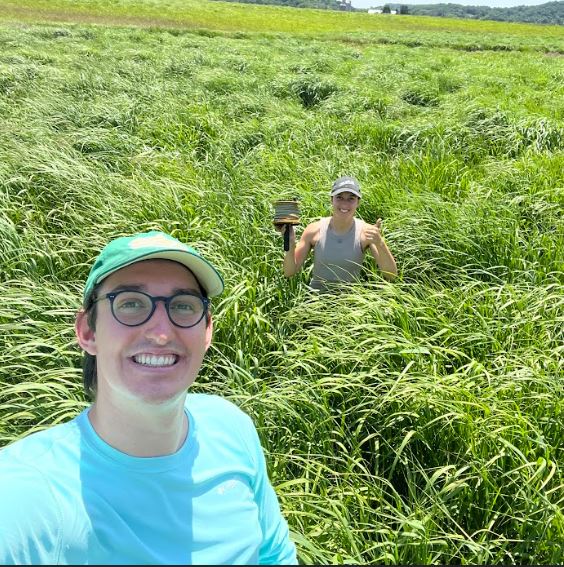Happy anniversary, sister

Image by David Nevala
In show of sibling pride on the occasion of the 60th anniversary year of the University of Wisconsin Water Resources Institute, here’s some background about this sister program that is housed along with our Sea Grant Program in the Aquatic Sciences Center at UW-Madison.
On July 17, 1964, President Lyndon B. Johnson signed the Water Resources Research Act to establish a water resources research institute in each state and Puerto Rico. The program was later expanded to include the District of Columbia, Guam and the U.S. Virgin Islands.
“The Congress has found that we have entered a period in which acute water shortages are hampering our industries, our agriculture, our recreation and our individual health and happiness,” Johnson said.
The 54 institutes are charged with undertaking multidisciplinary water research. They are a federal-state partnership, with federal funds coming through the U.S. Geological Survey and providing dollars to support two tracks, a core grant to each individual program and then a pot of money to annually use for national research competitions to address timely challenges. In Wisconsin, state funding through the Groundwater Coordinating Council also supports WRI.
Johnson’s statement continued, “The new centers will be concerned with municipal and regional, as well as national water problems. Their ready accessibility to state and local officials will permit each problem to be attacked on an individual basis, the only way in which complex characteristics of each water deficiency can be resolved.” Johnson also noted that centers, such as Wisconsin’s, “will enlist the intellectual power of universities and research institutes in a nationwide effort to conserve and utilize our water resources for the common benefit.”
Decades later, WRI continues to embody those 1964 presidential words. It has funded more than 140 research projects, including marquee issues as naturally occurring radium in southeastern Wisconsin. WRI research on those aquifers informed the first-ever binational approval of Great Lakes water withdrawals by a community outside of the basin. Waukesha secured that permission in 2016 because its own supplies were dwindling and contaminated.
Other WRI work has explored the long-term balance between water users in the Central Sands Region of Wisconsin. The scarcity of water in the area creates a tug between those wishing to use it for agriculture and those seeing reduced surface water levels, meaning sporting and recreational opportunities could be compromised.
More contemporary research priorities have been examining PFAS in the state’s waters, the effect of climate change on resources and assessing the extent and impact of pathogens in drinking water.
WRI also recruits and trains the next generation of water leaders. Throughout its history, more than 1,250 students have been trained by working on research projects.
“We are incredibly proud of the students and the work supported by WRI these past 60 years. At the same time, we know that water issues remain critical throughout the state. We look forward to supporting innovative and impactful research in Wisconsin,” WRI Interim Director Christy Remucal said.
The post Happy anniversary, sister first appeared on Wisconsin Sea Grant.Blog | Wisconsin Sea Grant
https://www.seagrant.wisc.edu/blog/happy-anniversary-sister/

